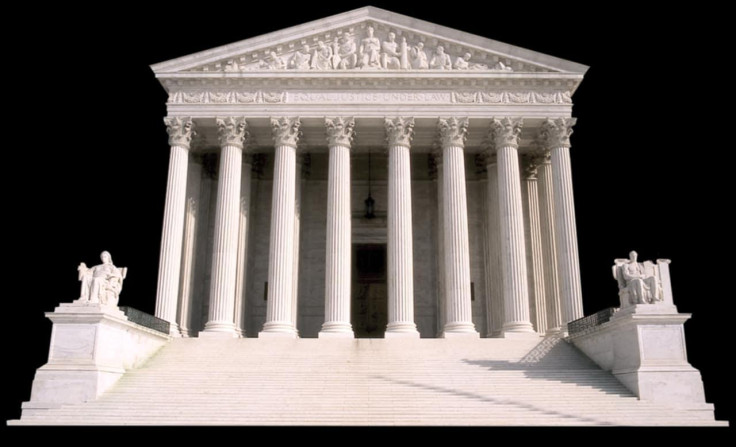US Faces £760 Billion Tariff Refund Crisis If Supreme Court Rules Against President Trump, Report Says

KEY POINTS
- The US Supreme Court is reviewing two cases challenging Donald Trump's authority to impose tariffs under IEEPA.
- Experts warn businesses to brace for complex refund claims and delays.
The United States is facing what experts describe as a potential financial crisis as the Supreme Court reviews the legality of President Donald Trump's wide-reaching emergency tariffs.
Trump, who is on his second term as President of the United States, used the International Emergency Economic Powers Act (IEEPA) to impose sweeping tariffs on foreign imports, a move now under intense legal scrutiny.
According to a CNBC report, a ruling against President Trump could force the federal government to return as much as £760 billion ($1 trillion) in tariff payments to American importers.
Treasury Secretary Scott Bessent told the Court that the longer the justices wait to issue a decision, the larger the potential repayment burden becomes. Tens of billions of pounds have already been collected this year, and that number increases every month.
A Refund Crisis That Could Overwhelm the System
The central question now dominating the case is whether the government must repay all tariffs collected if the Court rules the IEEPA duties unlawful.
Former Acting Solicitor General Neal Katyal argued before the Court, according to CNBC, that only the companies directly involved in the lawsuit would automatically receive refunds. All other importers would need to pursue a separate and complex legal process to recover their money.
Justice Amy Coney Barrett called this scenario 'a mess', warning that the government could face an administrative crisis of unprecedented scale.
Trade lawyers say the impact could be overwhelming. Many of President Trump's tariffs changed multiple times, and shipments often contained goods subject to different rates. The result is years of tangled customs data.
Joyce Adetutu, a partner at Vinson & Elkins, told CNBC that untangling years of tariff variations 'is going to take quite a bit of time' and will be 'an administrative burden' for regulators and businesses alike.
Importers Race Against the Clock
Companies across the country are already taking defensive action. Many have begun filing protective protests with US Customs and Border Protection to preserve their rights to potential refunds. Others are conducting urgent internal audits of historic customs entries, some dating back years, to calculate how much they may be owed.
The financial stakes are enormous. Large manufacturers have paid hundreds of millions of pounds in additional tariffs since President Trump activated IEEPA powers. Smaller firms say the costs have been devastating.
Rick Muskat, CEO of footwear brand DeerStags, told CNBC that his company has paid more than £760,000 ($1 million) in tariff charges. He believes importers should be able to claim refunds based on itemised customs paperwork, but warned that many smaller firms lack the resources to navigate the process.
Would the US Really Owe £760 Billion?
The Treasury Secretary believes it is possible.
If the Supreme Court overturns the emergency tariffs and rules that repayments must apply retroactively, Bessent estimated total refunds could reach £570.8 billion to £760 billion ($750 billion to $1 trillion). Every month the Court delays increases the potential liability.
A repayment wave of that size would be one of the largest forced reversals of federal revenue in American history and could ignite political, legal and economic turmoil.
What Happens If President Trump Loses?
President Trump argues that the tariffs are essential for national security and for correcting unfair trade imbalances. He has claimed that reversing them 'would literally destroy the United States of America'.
Critics say the administration misused emergency powers and bypassed Congress, which holds constitutional authority over taxation.
A High-Stakes Decision That Could Reshape Global Trade
For American businesses, the ruling could be transformative. A decision against President Trump could unleash the largest refund scramble ever seen, forcing companies to file claims quickly before deadlines close. If the Court upholds the tariffs, importers may permanently lose their chance to recover the money.
The Supreme Court is expected to rule in the coming months. Until then, the £760 billion question continues to hang over the U.S. economy, and the outcome may reshape global trade, supply chains and government power for years to come.
© Copyright IBTimes 2025. All rights reserved.





















